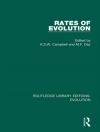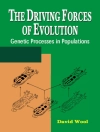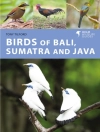When a parasite invades an ant, does the ant behave like other ants? Maybe not-and if it doesn’t, who, if anyone, benefits from the altered behaviors? The parasite? The ant? Parasites and the Behavior of Animals shows that parasite-induced behavioral alterations are more common than we might realize, and it places these alterations in an evolutionary and ecological context. Emphasizing eukaryotic parasites, the book examines the adaptive nature of behavioral changes associated with parasitism, exploring the effects of these changes on parasite transmission, parasite avoidance, and the fitness of both host and parasite. The behavioral changes and their effects are not always straightforward. To the extent that virulence, for instance, is linked to parasite transmission, the evolutionary interests of parasite and host will diverge, and the current winner of the contest to maximize reproductive rates may not be clear, or, for that matter, inevitable. Nonetheless, by affecting susceptibility, host/parasite lifespan and fecundity, and transmission itself, host behavior influences parameters that are basic to our comprehension of how parasites invade host populations, and fundamentally, how parasites evolve. Such an understanding is important for a wide range of scientists, from ecologists and parasitologists to evolutionary, conservation and behavioral biologists: The behavioral alterations that parasites induce can subtly and profoundly affect the distribution and abundance of animals.
Janice Moore
Parasites and the Behavior of Animals [PDF ebook]
Parasites and the Behavior of Animals [PDF ebook]
Mua cuốn sách điện tử này và nhận thêm 1 cuốn MIỄN PHÍ!
Ngôn ngữ Anh ● định dạng PDF ● ISBN 9780195349139 ● Nhà xuất bản Oxford University Press ● Được phát hành 2002 ● Có thể tải xuống 6 lần ● Tiền tệ EUR ● TÔI 2277006 ● Sao chép bảo vệ Adobe DRM
Yêu cầu trình đọc ebook có khả năng DRM












